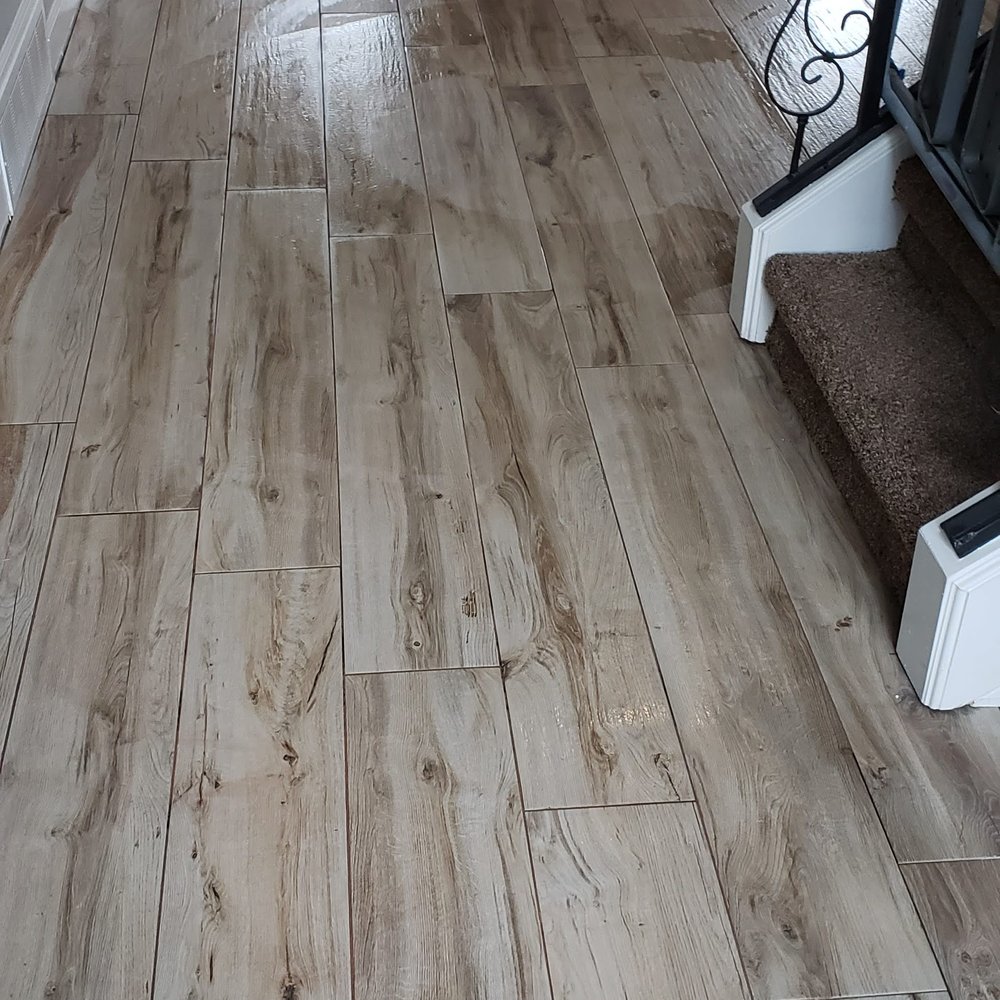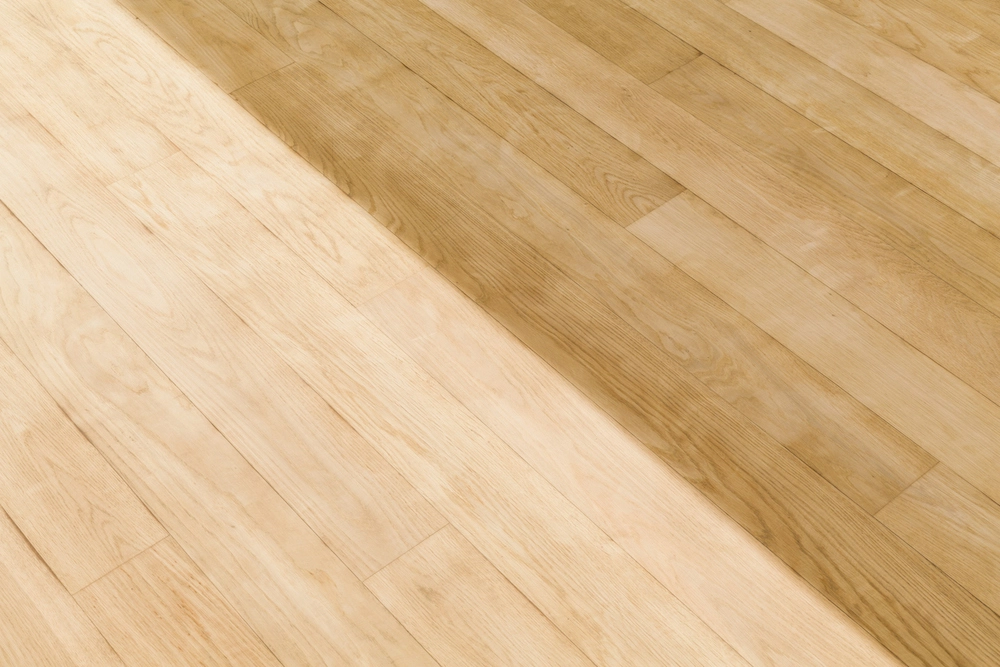If you live in New Jersey and are dealing with aging, damaged, or outdated flooring, you’re likely faced with a crucial decision: should you restore your flooring or replace it altogether? This is a common dilemma for homeowners and business owners alike, and the right choice depends on various factors, such as the condition of the floor, the material, cost considerations, and your aesthetic preferences. Both flooring restoration and replacement have their advantages, and this article will help guide you through the decision-making process by exploring the benefits and drawbacks of each option.
Flooring Restoration or Flooring Replacement in NJ
Flooring Restoration: Preserving the Past
What is Flooring Restoration?
Flooring restoration involves repairing and refinishing existing floors to bring them back to their original condition or close to it. Restoration typically includes processes like sanding, buffing, staining, and sealing. This option is often used for natural materials such as hardwood, stone, or tiles that are valuable and durable. The goal is to preserve the character and quality of the original flooring while addressing issues like scratches, dullness, or minor damages.
Benefits of Flooring Restoration
- Cost-Effective
Restoration tends to be significantly less expensive than replacing the entire floor. If the structure of the floor is sound and only the surface is damaged, restoration can achieve a brand-new look at a fraction of the cost.In New Jersey, the average cost to restore hardwood floors can range from $1.50 to $4.00 per square foot, depending on the condition of the floor and the type of finish. Comparatively, installing new hardwood floors could cost between $6.00 and $12.00 per square foot, not including labor.
- Preserving Character
Many homeowners appreciate the charm and patina of older flooring, especially when dealing with original hardwood in historic homes. Restoration allows you to maintain that character while addressing wear and tear. This is particularly relevant in New Jersey, where many homes date back several decades and have unique architectural elements worth preserving. - Environmental Benefits
Choosing to restore rather than replace is a more sustainable option. Restoration minimizes waste since the existing materials are repurposed rather than discarded. Additionally, you avoid the energy consumption and carbon emissions associated with manufacturing and transporting new flooring materials. - Quick Turnaround
Flooring restoration usually takes less time than a complete replacement. Depending on the size of the area and the extent of the damage, most restoration projects can be completed in a matter of days, minimizing disruption to your home or business.
 Drawbacks of Flooring Restoration
Drawbacks of Flooring Restoration
- Limited to Certain Materials
Not all types of flooring can be restored. While hardwood, tile, and stone are suitable candidates, options like laminate or vinyl may need to be replaced if they are severely damaged. If your current flooring is beyond repair, restoration may not be a viable solution. - Potential for Compromised Durability
While restoration can dramatically improve the appearance of older floors, it may not address underlying structural issues. For instance, if the subfloor is unstable or there is water damage beneath the surface, restoration will only provide a temporary fix. Eventually, these issues could worsen, leading to the need for a full replacement. - Not Suitable for Major Damage
If your flooring has deep gouges, warping, or extensive water damage, restoration may not be sufficient. In these cases, replacement may be a more practical and long-term solution.
Flooring Replacement: A Fresh Start
What is Flooring Replacement?
Flooring replacement involves completely removing the old flooring and installing new materials. This option allows you to start fresh with a wide range of flooring types, colors, and styles. You can choose to upgrade the existing floor or opt for something entirely different.
Benefits of Flooring Replacement
- Complete Customization
Replacement provides an opportunity to completely change the look and feel of your home. Whether you’re going for a modern look with sleek tile, a cozy atmosphere with carpet, or the timeless elegance of hardwood, the options are limitless. - Better Durability
New flooring is generally more durable than restored flooring, especially if you’re replacing worn-out materials. Modern flooring options, such as engineered wood or luxury vinyl planks, are designed to resist scratches, moisture, and wear better than older materials. This is particularly important in high-traffic areas or rooms exposed to moisture, such as kitchens and bathrooms. - Solving Underlying Problems
If your existing flooring has structural problems, such as a warped subfloor or mold growth, replacement allows you to address these issues. Starting from scratch ensures that your new floor is installed on a solid foundation, which can prevent future damage. - Increased Home Value
Installing new flooring can boost the value of your home, especially if you’re preparing to sell. In competitive real estate markets like New Jersey, new floors can make a significant difference in attracting potential buyers. Many buyers are willing to pay a premium for homes with new hardwood, tile, or luxury vinyl flooring, as these materials are seen as high-end, low-maintenance options.
Drawbacks of Flooring Replacement
- Higher Cost
As mentioned earlier, replacing floors can be considerably more expensive than restoration. In addition to the cost of new materials, you must account for labor costs, especially if the project requires additional work like leveling the subfloor. Depending on the material you choose, the cost can quickly add up. - Longer Timeline
Replacing flooring is more time-consuming than restoration, especially if it involves tearing out old flooring, addressing subfloor issues, and installing new materials. For larger areas, this could take several weeks, causing major disruptions in your living space or business operations. - Environmental Impact
While new flooring may be more durable and stylish, the environmental cost can be high. The production and transportation of new flooring materials consume energy and natural resources, and disposing of old flooring adds to landfills.
Key Considerations for New Jersey Homeowners
New Jersey’s diverse climate, ranging from hot and humid summers to cold winters, plays a role in your flooring decision. For instance, moisture-resistant materials such as tile or luxury vinyl may be a better option for areas prone to humidity. Meanwhile, hardwood is a classic choice for areas with moderate indoor climates but may require more maintenance over time.
Additionally, homes near coastal areas in NJ may experience higher humidity levels, making moisture resistance a top priority when selecting new flooring or considering restoration.
The Final Decision: Restore or Replace?
So, should you opt for flooring restoration or replacement in New Jersey? Ultimately, the decision depends on the current condition of your flooring, your budget, and your long-term goals. If your floors are structurally sound and only have minor surface issues, restoration is likely the more cost-effective and eco-friendly option. However, if your floors are severely damaged or outdated, replacement offers greater durability and customization possibilities.
In summary:
- Choose restoration if you want to preserve original materials, save money, and reduce environmental impact.
- Choose replacement if you want a fresh look, better durability, or need to address structural issues.
By considering your specific needs, budget, and the unique factors of living in New Jersey, you’ll be able to make the best choice for your home or business.
Looking for NJ Flooring Restoration or Flooring Replacement Services?
If you’re looking for an excellent flooring company in NJ, check out VCH Flooring today! We’re a flooring company in New Jersey that puts our employees and customers first. We offer high-quality vinyl, hardwood, carpet, and laminate flooring installation services to residents of South and Central NJ. Our core values are honesty, integrity, and transparency. Because your home is an investment, we offer personalized solutions for it. Our professional flooring solutions experts will assess your situation and propose the best flooring options for you to consider. They’re also ready to create custom flooring for your home according to whatever specifications you have. For more information, you can give us a call at (856) 393-1310 or check out our website.
Other Posts:
Gloucester County Flooring Company

